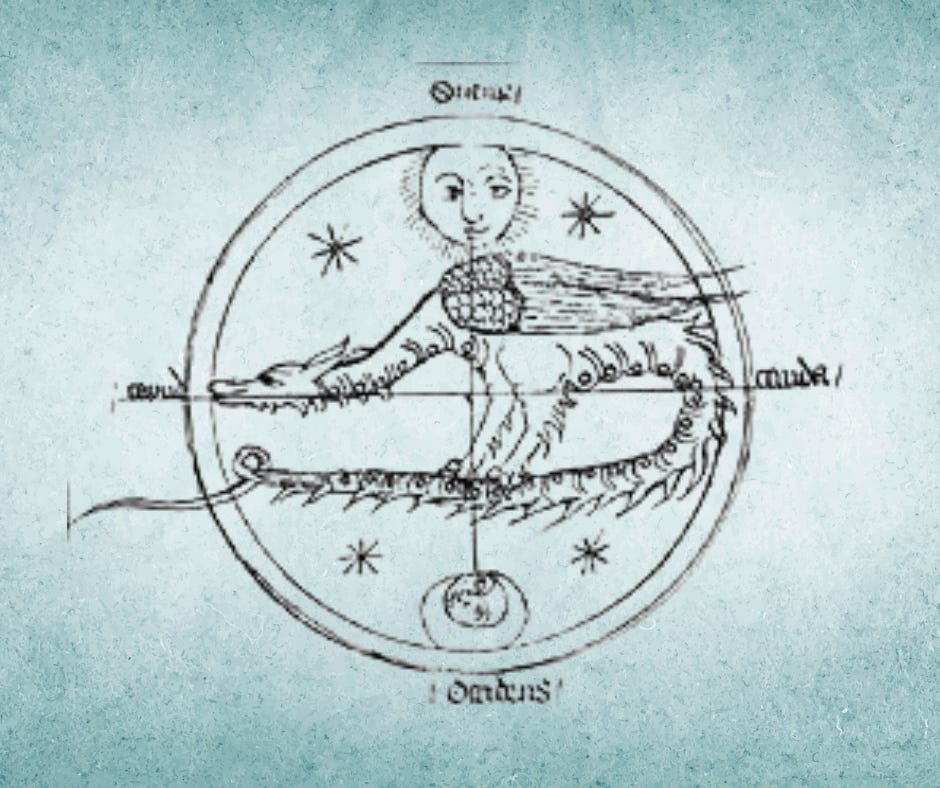The Tail and the Head of the Dragon
The Symbolic Meaning of the Nodes of the Moon in Astrology
Various mythologies have described the astronomical phenomenon of when the Moon cuts the ecliptic, that is when it crosses the orbit of the Earth and the Sun. This is how the Nodes of the Moon are formed. In reality, all the planets have their nodes, but the ones that generally receive the most attention are those of the Moon since they are the most obvious in our lives. Mythology describes the nodes as a dragon cut in two for having angered the gods. According to the culture, the reasons for his misfortune vary, but in general, it is a dragon that has brought chaos to the world by wanting to become a god himself.
The dragon sought immortality and stole divine nectar from the gods. He drank from it and it became eternal. The gods were furious. If we take Hindu mythology, it is Vishnu, the supreme being, who decides to cut off the dragon's head. From that moment on, the dragon would spend eternity trying to unite his head with the rest of his body.
The nodes of the moon are in opposite signs. This "head cutting" creates a polarization of these energies. Taking this symbolism into account, it seems that we will never achieve the integration of the qualities of the signs where the nodes are located. However... we will never stop seeking to unite them somehow!
We will go through countless experiences that will be chaotic, but at the same time, those same experiences are what make us evolve incessantly. It is as if the dragon, believing to outwit the gods, was actually fulfilling a divine mandate by stealing the nectar of immortality.
The nodes of the Moon generate chaos in our lives. Yet out of that very chaos comes genius. The search for an unalterable order is counterproductive. Despite the fact that, at first glance, coherence may seem very attractive, that linear order that many of us long for produces the destruction of creativity. In fact, we don't even know if the gods are that coherent… They only need to live more than 10,000 years for us to believe them to be eternal and unchangeable.
Of course, chaos does not have to be related to tragedy. Chaos, in Greek, means "opening space." That opening creates disorder. Our desire to rearrange what is in a chaotic state is what allows us to discover possibilities that were previously hidden from our awareness. Many times, rearranging the chaos allows us to eliminate something unnecessary that we had not noticed before, improving what we had known until now as “satisfactory”. Other times chaos allows us to create something wonderful, that we could never have imagined without chaos’s help.
Over time, we learn that what seems to be working well can always be better. For this reason, the great sages invite us to welcome chaos. Human nature is reluctant to give up what is already satisfying. If it weren't for the dragon's desire to unite his body with his head, we would still be living in caves.



